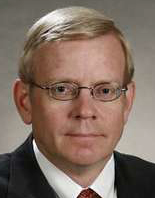
State: Ntl.
Torrey: UCLA Professor's Socio-Historical Account of Fatigue Touches on WC Themes: [2021-07-13]
University of California, Los Angeles, public health professor Emily Abel has written a brief but wide-ranging social history of the phenomenon of fatigue.

David B. Torrey
Abel, herself a breast cancer survivor who suffered from years of fatigue following chemotherapy, combines her sober historical analysis with aspects of memoir in "Sick and Tired: An Intimate History of Fatigue" (University of North Carolina Press. 196 pp. 2021). This approach makes for compelling reading.
And the book, treating an example of “contested illness,” will be of interest to members of the workers’ compensation community.
Fatigue itself is not reflective of a discrete injury or disease (as she says, “there are no diagnostic codes for fatigue”) but is a complaint often offered by patients (including injured workers) who are describing the aftermath of their injury and treatment. The most commonly encountered example by this writer is the easy one: the worker who is medicating (or over-medicating) for pain and expresses an inability to return to work because of the dangers of driving while drowsy.
Abel briefly mentions this situation, but the fatigue upon which she focuses is the post-injury or post-medical treatment condition of extreme lethargy that impairs individuals from some or all of the normal activities of daily living. The leading currently recognized malady is chronic fatigue syndrome (CFS), and of special interest to Abel is the malaise which can often follow cancer treatment.
Abel demonstrates that, over the decades, complaints of fatigue have been looked upon with suspicion by a society that has long viewed “productivity [as] the only measure of human worth.” She analogizes this phenomenon to the intolerance of both the medical profession and society to sufferers of long-term chronic pain and other “contested illnesses,” such as chronic Lyme disease, that implicate long-term disability.
Abel identifies and critiques three themes that she detects in the socio-historical record of how fatigue has been treated. All of these, notably, touch on how lawyers and judges think about disability.
She first concentrates on what she calls the rejection by modern medicine and society of sufferers’ subjective accounts of exhaustion (she calls this “embodied knowledge”). Most doctors and systems (like disability systems) demand that objective signs of pathology must be evident before a condition can be legitimated. This thinking echoes, of course, the familiar independent medical exam doctor refrain that objective signs of injury must be detectable before complaints of pain can be credited.
She reviews, secondly — and throughout the book — society’s devaluation as unproductive, and hence burdensome, those who, because of chronic conditions, are unable to work. This societal view, which the author decries, is pervasive in our field, where the worker who refuses to return to modified duty is often cast as a burden on the employer, the insurance carrier and the community at large.
Abel analyses, in her third and most compelling discussion, the “triumphal recovery narrative” that is so popular in both medicine and the disability insurance community. A dependable standby of workers’ compensation seminars is, indeed, the speaker who contrasts the disappointing long-term disability claimant with the much more seriously injured worker who has recovered, shown “resilience” and excelled.
Injured workers are encouraged by such speakers to follow the example of Christopher Reeve, whose quadriplegia did not prevent him from continuing with a fulfilling and productive life.
Of course, the answer to this rhetoric, typically offered by motivational speakers, is that heroism is not, or should not be, the standard. As the author, reflecting on precisely this point, states, “physical imperfection is a condition of human life, rather than a cause for shame ... disability arises as much from social arrangements and cultural attitudes as from physical impairment, [and] … everyone cannot be expected to overcome whatever adversity strikes.”
She is correct: We all admire the strong-willed, the person of true grit and the resilient. But on the other hand, not everyone is Superman.
The author’s historical review of how fatigue has been diagnosed by doctors and regarded by society over the last 150 years will educate and enlighten the disability professional. The book follows through, further, on its promise of intimacy. Abel, in this regard, affectingly recounts not only her struggle with breast cancer but her childhood and how the then-current scourge of polio affected her and her thinking about how one must respond to disease, surgical intervention and, finally, its exhausting aftermath.
David B. Torrey is adjunct professor of law at the University of Pittsburgh School of Law and a workers’ compensation judge with the Pennsylvania Department of Labor & Industry. This entry is republished from the Workers' Compensation Law Professors blog, with permission.